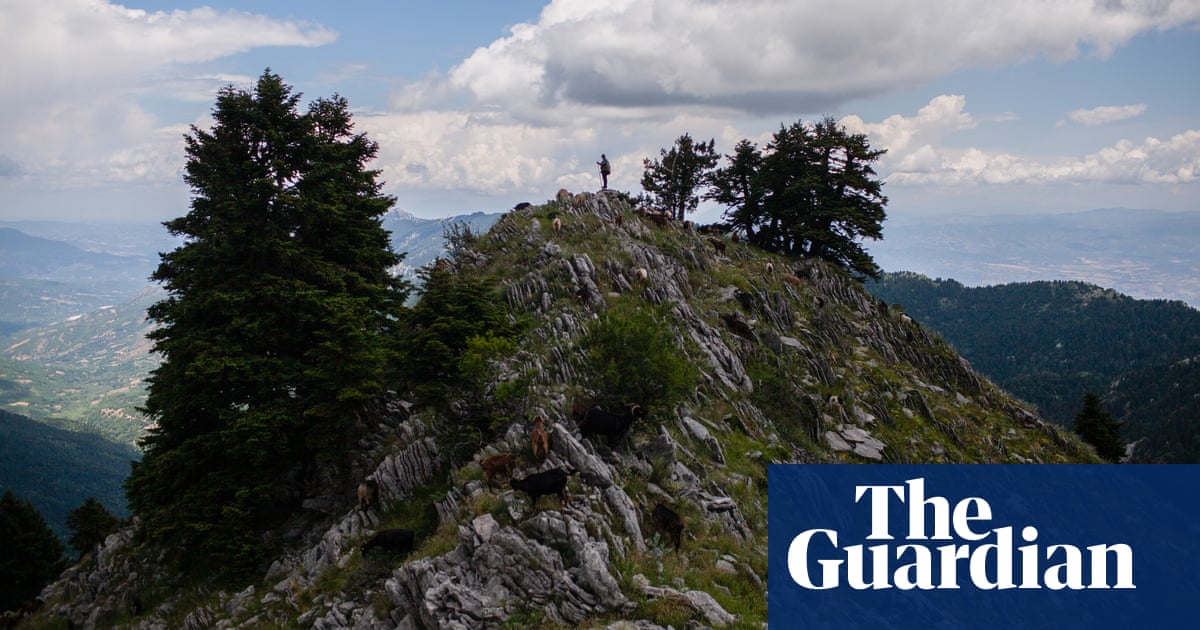
Driving out to his mountain farm in the Dyfi valley, John Pughe is on the lookout for holly branches. Cutting the holly, to be used by market traders for Christmas gifts alongside wood to be sold for burners, John is always looking out for extra income. He and his farm-trained son, Alwyn, rear sheep and cattle over steep rocky hills following the generational family tradition.
The Pughe family includes Dafydd, who has three children, of whom one plans to have her own farm. His brother John runs a nearby farm with his son Alwyn. For farmer and livestock alike, their lives on the land are generational.
The Dyfi valley sits on the southernmost reach of Snowdonia. The valley straddles the River Dyfi, which starts high up on Aran Fawddwy, then weaves its way through the valley getting wider until it meets the Irish Sea in a large estuary at Aberdyfi. The valley is a Unesco biosphere, meaning it is an area where conservation protections and sustainable economic development policies are in place.
The valley has an industrial history, with slate mining predominate in the 1800s to early 1900s. Alongside this, hill (upland) farming has been another staple industry in the area with longstanding farming dynasties tending livestock in the hills surrounding the valley.
This lifestyle, for many farmers in Wales, is a significant part of their identity, with farms and homes being passed down through multiple generations. Most upland farmers use traditional agricultural techniques, raising sheep and cattle on the high hills. However, in a changing world with new economic and environmental pressures, the next generation of farmers are having to change their practice.
Many upland farms are vulnerable to the government’s changes to the basic payment scheme, an annual stipend to farmers which on average makes up 60% of a farmer’s income. The new funding scheme requires farms to use 10% of their land as woodland and habitat, which is often unsuitable in the high terrain. Alongside this, the 2024 autumn budget has changed the rules around inheritance tax on agricultural assets worth more than £1m, which may negatively affect UK family farms.
Aled Jones, the president of the Cymru National Farmers’ Union (NFU), says farmers are already under an extreme amount of pressure, whether that be due to rising costs, the weather, regulation or policy changes to name but a few.
NFU Cymru members travelled to London this week to join a protest about the changes in Westminster.
Some farmers are reacting to these changes through modern and progressive techniques. Rhidian, John and Dafydd’s nephew, has studied agriculture at university and now runs a successful farm where he uses data and selective breeding to produce profitable results. He uses the land in an intensive style and is converting his traditional sheep farm to a dairy farm.
The Dyfi valley has always been a place of innovation. Since slate mining, it has become a place of sustainability and is the home of the Centre for Alternative Technology, where green ways of living have been championed since 1973. The next generation of farmers inheriting the traditional lifestyle are also learning to be sustainable in a changing world order and environmental landscape.
Caeadda, which translates to “Adam’s Field”, is the name of the farm where this family grew up (or are the descendants of previous custodians). The community has a deep and personal relationship with these hills.
The land, way of life and knowledge has been passed down through generations. They will manage it with care until it’s time for the next cohort to start their guardianship.












